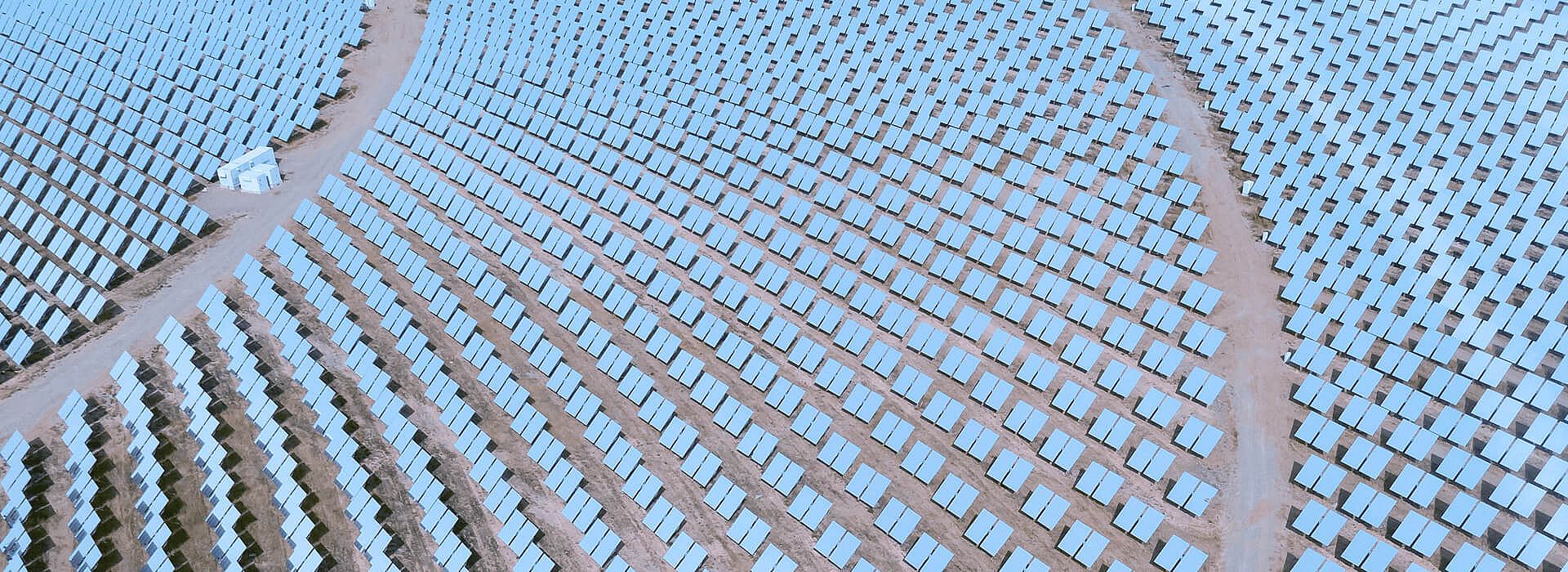
AI methods for heat and power generation with solar thermal collector systems
Due to the complex interaction in concentrating solar thermal systems between the extensive optical systems and the thermal-hydraulic high-temperature processes, the degree of automation is still comparatively low. However, the automation and optimization of system operation holds significant potential for further cost reduction.
Within this project, existing ground-based and airborne optical remote sensing systems for monitoring environmental conditions and the condition of power plants will be optimized using AI methods. Innovative semi-supervised and self-supervised methods are used, which can work with extensive unlabeled or only partially labelled data. The measurement results of the remote sensing systems are combined with the thousands of sensor channels of the plants (temperature, mass flow, collector position, pressure, etc.). Due to the amount of data and the variety of overlapping physical effects, an optimal utilization of the existing data is not possible with classical methods. For this purpose, the vision of an intelligent "O&M assistant" is being pursued, which continuously accesses and learns from all available information. Integrated into the control system, such an O&M assistant can make a significant contribution to the complete automation of CSP systems and thus increase system efficiency and reliability. Germany's positioning in this innovative condition monitoring and automation field also opens up a wide range of global marketing opportunities that promote the shift to renewable energies.
When evaluating the solar thermal operating data, variables must be taken into account that drastically complicate the application of classic machine learning methods. For example, the measurement data are subject to weather and seasonal fluctuations and can show peculiarities that are specific to each plant and geographical position. To nevertheless use the acquired sensor signals for tasks such as fault detection or the estimation of pollution levels, models are required that are largely insensitive to such variabilities. The development of models with invariance with respect to data distribution, data syntax and the desired task is a central research interest. An important aspect is the extraction of descriptors and development of distance measures for temporally and spatio-temporally resolved data.
The developed methods and approaches will be evaluated and analyzed with regard to their suitability. This requires, among other things, the use of suitable simulation environments, which are also in the research interest of fortiss. In connection with CO simulation environments, the connection and integration of real components is also essential in order to draw conclusions about the actual system behavior. Possibilities of injecting potential faults into the existing system are also being investigated here.
Project goals fortiss is researching:
Federal Ministry for the Environment, Climate-Action, Nature Conservation and Nuclear Safety
Project sponsor: Zukunft – Umwelt – Gesellschaft (ZUG)
Funding reference number: 67KI21007%
04.07.2022 - 03.07.2025